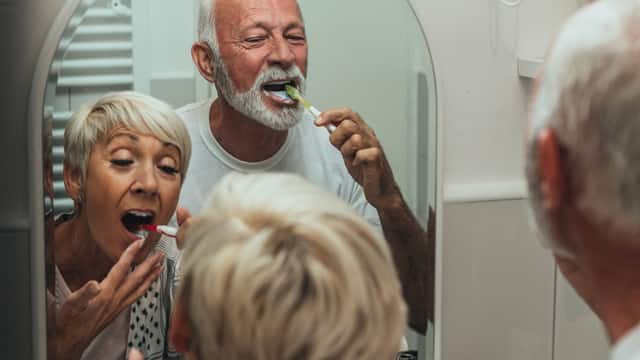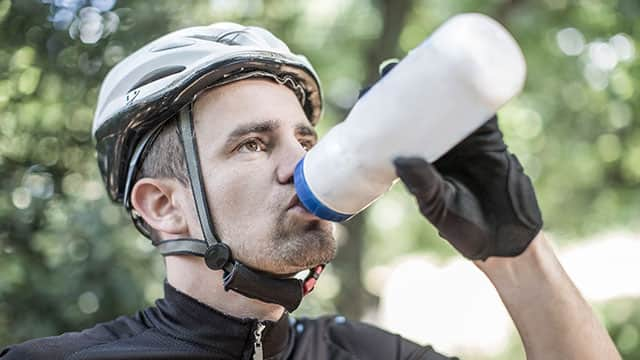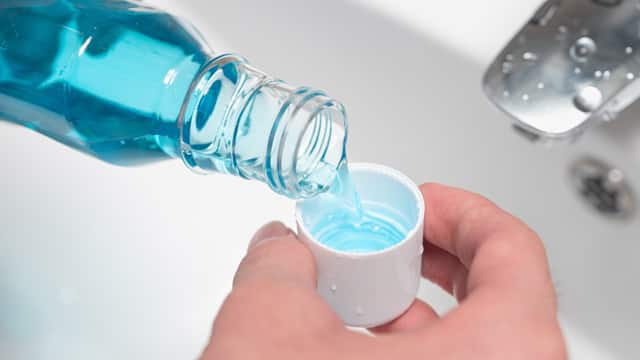CPAP dry mouth is a common side effect of using a CPAP machine. As noted by the National Heart, Lung, and Blood Institute, you might have dry mouth because you need some time to get used to your new CPAP. In other instances, making adjustments to the CPAP device can help improve dry mouth.
How a CPAP Machine Works
Although there are other sleep apnea types, the most common is obstructive sleep apnea (OSA). Did you know that according to a study published in the Journal of Otolaryngology-Head and Neck Surgery, about 3-9% of the general population has obstructive sleep apnea? When you have this condition, your airway becomes blocked while you sleep so that you actually stop breathing on and off throughout the night. A CPAP machine helps treat obstructive sleep apnea by pushing air through the nose or both the nose and mouth while you sleep.
What Causes CPAP Dry Mouth?
Depending on the type of device you have, the mask part of your CPAP machine might cover only your nose or nose and mouth simultaneously. Often, CPAP with dry mouth as a side effect has to do with this issue. If it only covers your nose, you're more likely to get dry mouth vs. if it covers both your nose and mouth.
If you sleep with your mouth open while wearing the CPAP, you're more likely to wake up with a mouth that feels dry. And if you were a mouth breather before using a CPAP, you might be more likely to experience dry mouth when using it.
Another cause of dry mouth might be a mask that doesn't fit you properly. If a mask is too big or small or just not the right shape, it can let air leak out, which can dry out your mouth or your nasal passages.
How to Prevent CPAP Dry Mouth
As long as your dry mouth is from your CPAP and not from something else, such as any medication or another medical condition, it shouldn't be too difficult to figure out how to prevent it! One option is to switch from a machine that only covers your nose to a full face machine. It will reduce the chance of you breathing out of only your mouth. If you prefer to keep using a mask that only covers your nose, it might be worth adding a chin strap. The strap wraps under your jaw, helping to hold your mouth closed during sleep.
Some CPAP machines feature heated humidifiers, which moisten the air that flows from the machine. If you're experiencing dry mouth or dry nasal passages when you wake up, it might be worth talking to your doctor to see if a CPAP with a humidifier is a good option for you.
Making sure your mask fits you properly may also prevent dry mouth from occurring. Your doctor can help fit the mask to your face or recommend a different option if your current mask isn't working right. Remember that tightening the straps on the mask isn't a reliable way to fix a leaking mask. You're likely to end up with pressure marks and bruises on your face.
As you adjust to wearing a CPAP, dry mouth medications can also help relieve this side effect. Oral sprays, gels, and rinses can help stimulate your mouth to produce more saliva, which is the main issue with dry mouth. You should definitely speak to your dental or medical professional about your dry mouth. But in the meantime, there are at-home treatments and lifestyle changes you can make. They range from chewing sugarless gum to reducing your intake of alcohol and caffeine.
Although a CPAP machine can effectively treat sleep apnea, the Journal of Otolaryngology-Head & Neck Surgery study notes that they have a relatively low adherence rate. It looked at research published over the past 20 years and found a non-adherence rate of 34.1%. So that's a significant reason to get your dry mouth solved sooner rather than later! You don't want there to be any reasons that could get in the way of you wearing your CPAP machine.
If your device is causing dry mouth or another discomfort, don't give up on it! Your dental or medical professional can help you. They can adjust your mask or find a machine style that treats your sleep apnea without drying out your mouth. In the meantime, keep up with your excellent oral hygiene habits, as those will play a role in your dry mouth too. Continue to brush your teeth twice a day, clean between your teeth with an interdental device like floss or a water flosser once a day, and follow up with a rinse of mouthwash. You probably weren't expecting to have an oral health side effect from getting a device to help with your breathing, so we don't blame you for feeling some annoyance! But working out these kinks will have significant benefits in the long run - for your sleep, happiness, and overall health!
This article is intended to promote understanding of and knowledge about general oral health topics. It is not intended to be a substitute for professional advice, diagnosis or treatment. Always seek the advice of your dentist or other qualified healthcare provider with any questions you may have regarding a medical condition or treatment.
ORAL HEALTH QUIZ
What's behind your smile?
Take our Oral Health assessment to get the most from your oral care routine
ORAL HEALTH QUIZ
What's behind your smile?
Take our Oral Health assessment to get the most from your oral care routine






.jpeg)








